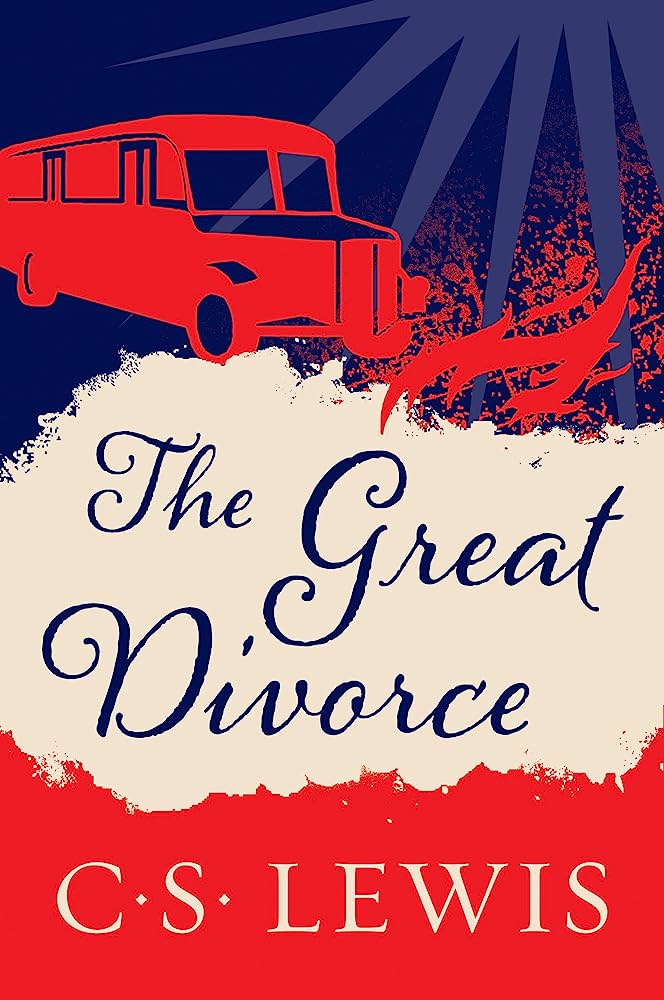I am excited about our starting of C. S. Lewis’s The Great Divorce. Please read the Preface and Chapters 1-3 for tonight. Throughout the story, one of Lewis’ underlying themes is that we are constantly either growing into the fullness of the reality of heaven, or we are decaying into the emptiness of the unreality of hell. If you read through the two full paragraphs on pages viii and ix of the Preface, Lewis has an understanding that, although there are two paths we can go by, in the long run, there is still time to change the road we’re on if we are willing to go back to where we got off track. These roads begin in this life and continue in the life to come. As Lewis writes: “I think that earth, if chosen instead of Heaven, will turn out to have been, all along, only a region in Hell; and earth, if put second to Heaven, to have been from the beginning a part of Heaven itself.”
This past Sunday at Messiah, Alex Barron referenced Dostoyevsky’s “The Brothers Karamazov.” the Gospel reading was the Temptation of Christ in the Wilderness. (Since the first English Book of Common Prayer appeared in 1549, and through all subsequent revisions in England and elsewhere, this lesson has remained the first lesson of Lent.) In the novel, Ivan Karamazov (the anti-clerical brother) tells the story of the Grand Inquisitor of Seville who imprisons Jesus upon his earthly return. The Grand Inquisitor tells Jesus he should not have spurned Satan’s temptations in the desert. The Inquisitor rightly discerns that Jesus rejected the temptations so that we would be given the freedom to follow him. According to the Inquisitor, however, people will follow miracles (turning stones into bread), mystery (casting Himself from the Temple to be saved by the angels) and authority (ruling over all the kingdoms of the world), but human nature is too weak to freely follow Christ. Therefore, in rejecting the Temptations, Jesus rejected the only real means by which we could obtain salvation. The Inquisitor thus implies that Jesus, in giving humans the freedom to choose, has excluded the majority of humanity from redemption and doomed it to suffer. (According to the Inquisitor, the Church will then fill these roles in order to compel us to follow Jesus.) I have attached this chapter for your review. The cliff note version is HERE. For our reading tonight, this story does raise the issue of whether we can freely turn to Christ, as Lewis implies, or whether we must be tricked into it as the Inquisitor suggests.
Dinner is at 6. The menu is macaroni and cheese. Discussion about 6:45. Hope to see you here.
Rid yourselves, therefore, of all malice, and all guile, insincerity, envy, and all slander. Like newborn infants, long for the pure, spiritual milk, so that by it you may grow into salvation—if indeed you have tasted that the Lord is good.
1 Peter 2:1-3

